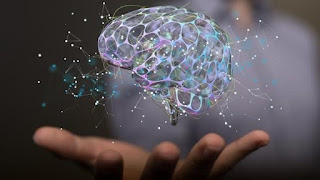The brain, weighing just one kilogram, is the most sophisticated and complex device on Earth due to its plasticity, its imagination, its capacity for abstraction and its adaptation to different contexts. Its delicate microarchitecture contains hundreds of billions of cells (neurons and glia), giving it its overwhelming complexity and limitless potential.
But now its last mission is threatened, that is, its true reason for being is to guarantee the survival and reproduction of the body that houses it, But the most fascinating thing about the brain is its ability to self-modify, evolve and adapt with the incorporation of new neurons (neurogenesis) and the remodeling of those that already exist. An issue that has recently been corroborated, as explained in 'Redefine impossible' by Jonathan Benito Sipos, professor and researcher of Neuroscience at the Autonomous University of Madrid.
Mentioning that the habit itself can become that the new neurons "do not die (cell suicide), remain integrated into our circuits and develop and generate greater cognitive capacity, it is necessary to create the appropriate context”, as the author specifies. And creating that enabling environment is what Jonathan Benito calls the triad of success: clear goals, determination, and a positive attitude.
1. Clear goals
Having clear objectives is key because it is something that is linked to motivation. In fact, the author explains that one of the reasons for the great dissatisfaction seen in modern society is precisely because the brain is programmed to satisfy basic needs (having access to food or shelter, for example), but not elevated ones ( self-actualization, for example). "We're the only species that doesn't have to worry about things like hunting or surviving a predator attack, and that can leave the brain somewhat adrift, aimless. And that can lead us to feel dissatisfied despite having everything. That is why the objectives are relevant », he argues.
2. Determination
Perseverance is something that is also linked to goals and is essential for the phenomena associated with neuronal plasticity to develop in the brain. «There will be hard times, but if you anticipate that you are going to fall many times, remember that you will also get up many other times. The concept of time is important because when we set ourselves a goal we must take into account that the brain needs its deadlines to remodel itself towards that goal. We must be patient and treat each other with care and rationality », he advises.
3. Positive attitude
This concept is, in the opinion of Jonathan Benito, one of those that has been treated with the greatest frivolity, especially in the framework of personal development and coaching, since it does not consist of believing oneself capable of everything one sets out to do, but of being aware of that the predisposition we show towards life is what life shows with us. Do we want to block ourselves or give ourselves wings? "The constant science that we don't live up to the abilities we're born with, but the beliefs we forge," he says. At this point, the author highlights the neurophysiological role of the placebo effect (when positive expectations trigger the release of endorphins, beneficial to the body) and the nocebo effect (when negative expectations trigger harmful substances such as cortisol). He also refers to the effect of the self-fulfilling prophecy: the expectations that we have and that others have about our performance influence it, either positively (Pygmalion effect) or negatively (Golem effect).
Stress, the great enemy
On the other side of the scale would be stress, the biggest obstacle we face when it comes to producing and regenerating neurons. “Stress is highly eliminated, especially if it is perpetuated. Anyone who has experienced a more or less strong stress situation has experienced attention or memory difficulties and a low mood. In fact, a scientific level has proven that the hippocampus area is reduced in those people who have suffered prolonged stress over time.
It is true that the function of stress is survival, but in the long term it is very harmful because it generates cortisol, which reduces the immune system and causes diseases, premature aging and cell death in the hippocampus, according to the author.
That is why it is so important to introduce habits into our lives that reduce the impact of stress, such as taking short breaks, listening to music, exercising and taking care of social relationships. Some stimuli for the creation of neurons are: walking three and a half hours a week, spending time in nature, interaction with our loved ones (face-to-face, calls and video calls) and physical contact (both sexual and non-sexual). "Contrary to popular belief, the use of social networks is not enough to replace social contact," he clarifies.
Eating and sleeping, healthy for the brain
Diet also modulates the physiology of the brain. However, the expert points out that reducing the amount of food we eat can be beneficial because the brain takes about 10 minutes to let us know that it is full, so, as he explains, stopping eating earlier than we are used to can help Avoid unnecessary caloric intake.
A varied diet rich in Omega-3, flavonoids and zinc can also contribute to increasing neurogenesis, as well as correct chewing.
Sleep is another important factor in caring for the brain, as its deprivation causes chronic stress. "Getting enough sleep (an average of seven or eight hours), setting the bedtime and avoiding interruptions (especially technological ones) are factors that contribute to increasing the number of neurons," explains Benito.
✨
Credits: via


Post a Comment